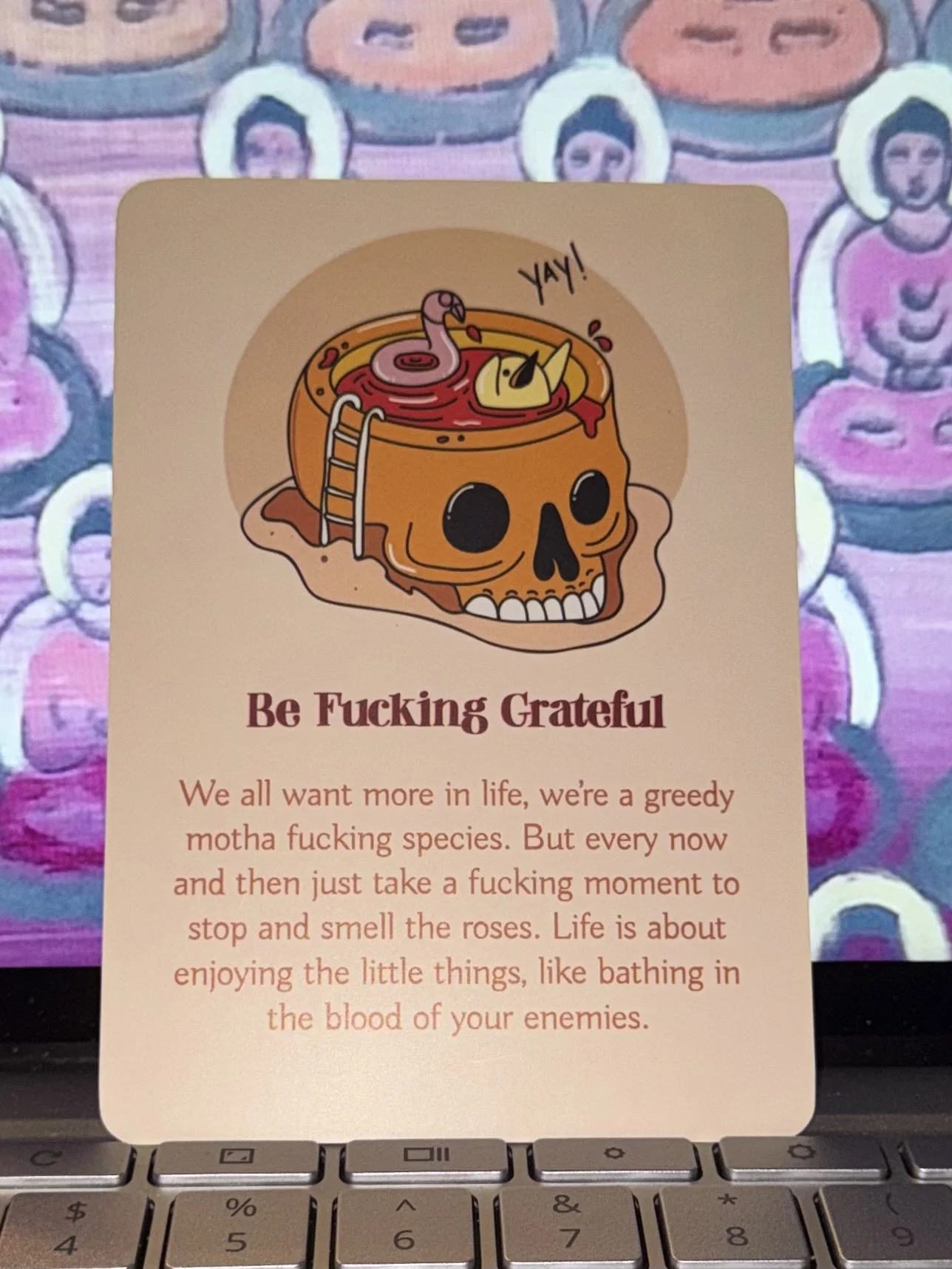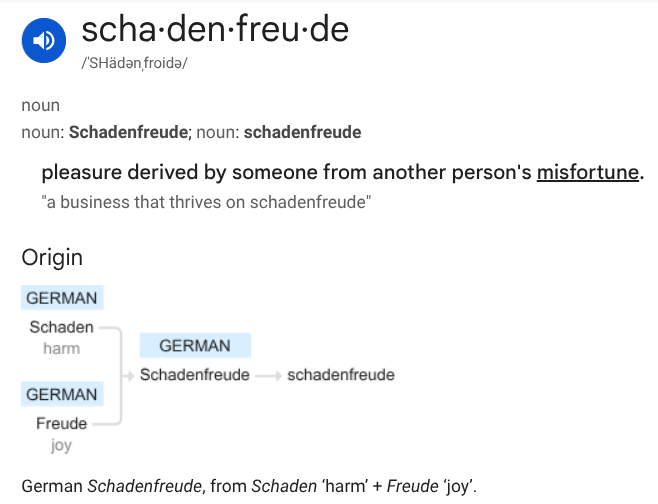Life sucks.
We're not supposed to a c t u a l l y say it, but it does.
Life is hard and it's only getting harder.
Getting out of bed is a Herculean effort some days...and I'm an annoying morning person.
Aside from screaming FUUUUUUCK a lot at the top of our lungs, what are we supposed to do?
𝙱𝚎 𝚏𝚞𝚌𝚔𝚒𝚗𝚐 𝚐𝚛𝚊𝚝𝚎𝚏𝚞𝚕.
How?
Start small.
What did you have for breakfast today?
Was it good?
Be grateful you had breakfast, even if it was just coffee.
Are you wearing shoes?
Be grateful, lots of people don't have shoes.
Yes, it's that simple.
Now, onto the blood of our enemies.
Let's talk about schadenfreude and how that shows up. For those who aren't familiar with the concept, here is the definition.
An entire word to define the pleasure derived from another's misfortune? The Germans nailed it, and it's so perfect that there is no English equivalent.
But doesn't that make you an asshole?
Yeah...so?
But it may be an important and valid emotion that helps establish inequity aversion and has been detected in children as young as 24 months old. Inequity aversion is exactly what it sounds like: the recognition that unfair disparities (inequities) exist due to biased systems and policies, which lead to different outcomes for different groups of people.
Self-esteem can affect how schadenfreude shows up. People with lower self-esteem are prone to experience it more often and more intensely. But people with higher self-esteem also experience it, usually as small but negligible boosts to their confidence.
The point is, we all have our own little version of schadenfreude, and that's alright.
How does this pertain to gratitude?
Imagine you walk into a job interview and the other person interviewing is someone you knew from school. But they weren't your friend, they were a horrible bully and made your life hell. You were always the better person and you persevered and thrived.
You both interview.
You get the job.
And because you knew the other person and had reasons to not root for them, you experience a little rush at their misfortune.
You never wished them ill.
You didn't actively celebrate that they didn't get the job.
You simply acknowledged that their misfortune brought you a sliver of joy.
That tiny bit of schadenfreude only works to bolster your gratitude for getting the job.
To summarize, be grateful for everything you have.
It's alright to experience schadenfreude.
If you want to read more about Schadenfreude, check out the book Schadenfreude by Tiffany Watt Smith.
And as always, if you liked what you read...buy me a coffee.
I promise to be grateful for it.


